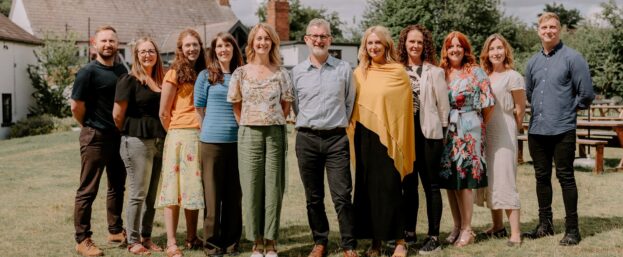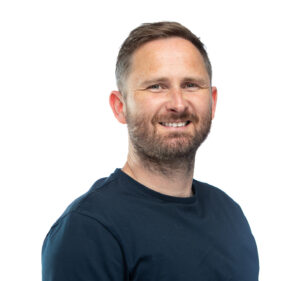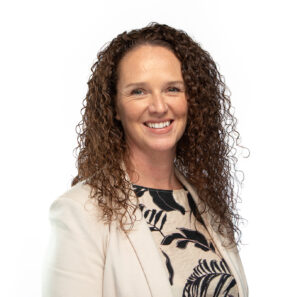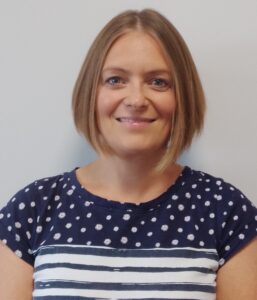Who we are

 Dr Helen Newby (based near Northwich) download CV
Dr Helen Newby (based near Northwich) download CV
 Helen is a highly experienced Clinical Neuropsychologist and chartered Clinical Psychologist as well as being our Managing Director. She has worked in older adult, intermediate care and acquired brain injury services for more than 20 years. Helen has a special interest in mental capacity assessments for older adults and adults with a brain injury. She has established an excellent reputation amongst legal firms and case managers for her high quality work in this area together with her work in the rehabilitation of those who have suffered an acquired brain injury.
Helen is a highly experienced Clinical Neuropsychologist and chartered Clinical Psychologist as well as being our Managing Director. She has worked in older adult, intermediate care and acquired brain injury services for more than 20 years. Helen has a special interest in mental capacity assessments for older adults and adults with a brain injury. She has established an excellent reputation amongst legal firms and case managers for her high quality work in this area together with her work in the rehabilitation of those who have suffered an acquired brain injury.
She offers mental capacity assessments often in high value, complex and contentious matters, direct rehabilitation and consultation with teams working with sufferers of an acquired brain injury, professional supervision, training and CPD for professionals. Her practice in rehabilitation is informed by a variety of approaches such as mindfulness, cognitive behavioural therapy and cognitive analytical therapy. In 2014 she co-authored a chapter on completing capacity assessments in the textbook “Practical Neuropsychological Rehabilitation in Acquired Brain Injury: A Guide for Working Clinicians co-edited by Gavin Newby.
 Dr Gavin Newby (based near Northwich) download CV
Dr Gavin Newby (based near Northwich) download CV
 Gavin has over twenty-five years’ experience as a Clinical Neuropsychologist, working with people who have an acquired brain injury (ABI) and their families. He worked in this area for much of his NHS career from 1992-2016. Latterly he was the Clinical Lead and Consultant Clinical Neuropsychologist for ABI Services in Cheshire and the Wirral providing community-based individual and family interventions. He was Speciality Clinical Director for ABI and Learning Difficulties.
Gavin has over twenty-five years’ experience as a Clinical Neuropsychologist, working with people who have an acquired brain injury (ABI) and their families. He worked in this area for much of his NHS career from 1992-2016. Latterly he was the Clinical Lead and Consultant Clinical Neuropsychologist for ABI Services in Cheshire and the Wirral providing community-based individual and family interventions. He was Speciality Clinical Director for ABI and Learning Difficulties.
Now in full time independent practice, Gavin’s offers direct rehabilitation and indirect consultation with teams working with ABI, mental capacity assessment, supervision, training and conference presentations. His neuropsychotherapeutic interests are in systemic and personal constructs therapy after ABI. He has published a number of articles on mental capacity assessments, using emails in psychotherapy, parenting after ABI, risk management, and return to driving.
Gavin has recently co-edited the textbook “Practical Neuropsychological Rehabilitation in Acquired Brain Injury: A Guide for Working Clinicians“.
Jo Gregory, Business Manager
 Jo has worked for Newby Psychological Services for over 10 years. She provides invaluable business support and assistance to the Directors and the team of Associates to ensure the smooth running of Newby Psychological Services on a day-to-day basis.
Jo has worked for Newby Psychological Services for over 10 years. She provides invaluable business support and assistance to the Directors and the team of Associates to ensure the smooth running of Newby Psychological Services on a day-to-day basis.
Jo has a background in marketing, business and finance and works diligently to support all the clinicians.
Dealing with both clients, case managers and solicitors enquiries, Jo is an invaluable part of the team.
Our Associates:-
Dr Natalie Hampson (based near East Manchester) download CV
 Natalie has over 10 years experience specialising in the assessment and treatment of acquired brain injury and neurological disorders. Natalie has significant experience of providing treatments for individuals with neurological impairments, their families/carers and multidisciplinary teams. Examples of this work include neuro-rehabilitation for memory and attention problems, management of behaviour change, education and support, and therapy for difficulties associated with adjustment, anger, anxiety, depression, and trauma.
Natalie has over 10 years experience specialising in the assessment and treatment of acquired brain injury and neurological disorders. Natalie has significant experience of providing treatments for individuals with neurological impairments, their families/carers and multidisciplinary teams. Examples of this work include neuro-rehabilitation for memory and attention problems, management of behaviour change, education and support, and therapy for difficulties associated with adjustment, anger, anxiety, depression, and trauma.
Natalie also specialises in administering and interpreting a wide range of neuropsychological assessments to establish people’s levels of impairment and functioning, conducting complex capacity and risk assessments, and providing comprehensive reports to help inform treatment decisions and rehabilitation needs.
Natalie provides regular consultancy to a range of professionals and is a lecturer and clinical and research supervisor of doctoral trainee Clinical Psychologists within the North West.
Dr Will Curvis (based near Rossendale) download CV
 Will qualified as a clinical psychologist in August 2015. His background is in A&E and Major Trauma clinical psychology services, and he now works in an acute inpatient neuropsychology service. Within this role, he provides direct psychological assessment and intervention for patients presenting with complex and often co-morbid physical and mental health needs. This includes working with people who have suffered an acquired brain injury or have undergone neurosurgery.
Will qualified as a clinical psychologist in August 2015. His background is in A&E and Major Trauma clinical psychology services, and he now works in an acute inpatient neuropsychology service. Within this role, he provides direct psychological assessment and intervention for patients presenting with complex and often co-morbid physical and mental health needs. This includes working with people who have suffered an acquired brain injury or have undergone neurosurgery.
In independent practice, Will specialises in providing rehabilitation for clients who have suffered a brain injury and completing mental capacity assessments. He particularly values working within teams using a biopsychosocial framework to assist client’s in moving on from the psychological, emotional, cognitive and behavioural consequences of brain injury.
Dr Róisín Cunningham (based near Liverpool) download CV
 Róisín qualified as a clinical psychologist in 2013, following a period working in research into how mental health difficulties are experienced in families. Her NHS work has been with people with cognitive impairment caused by traumatic brain injury, stroke and learning disabilities, as well as working within the Centre of Excellence for Behcet’s disease. Within her current role she provides cognitive assessment and rehabilitation for patients who have experienced an acquired brain injury or stroke, as well as working with individuals, their families and carers to promote psychological adjustment to their changed life circumstances.
Róisín qualified as a clinical psychologist in 2013, following a period working in research into how mental health difficulties are experienced in families. Her NHS work has been with people with cognitive impairment caused by traumatic brain injury, stroke and learning disabilities, as well as working within the Centre of Excellence for Behcet’s disease. Within her current role she provides cognitive assessment and rehabilitation for patients who have experienced an acquired brain injury or stroke, as well as working with individuals, their families and carers to promote psychological adjustment to their changed life circumstances.
In her therapeutic work, Róisín prefers to use an integrative approach, drawing on techniques from a variety of models to find an approach that works best for her client, taking into account their neuropsychological profile, values, resources, skills and individual goals. She has a particular interest in contextual behaviour therapies, such as Acceptance and Commitment Therapy, when working with this client group.
Dr Emma Weymouth (based near Southport) download CV
 Emma works with patients with acquired brain injury with complex physical and neuropsychological health needs in NHS roles and private practice. Emma has experience offering individualised neuropsychological assessment, formulation, psychological therapy and cognitive rehabilitation to support patients with acquired brain injury directly and provide consultation and support to families and multidisciplinary teams. Emma is also experienced in carrying out mental capacity assessments.
Emma works with patients with acquired brain injury with complex physical and neuropsychological health needs in NHS roles and private practice. Emma has experience offering individualised neuropsychological assessment, formulation, psychological therapy and cognitive rehabilitation to support patients with acquired brain injury directly and provide consultation and support to families and multidisciplinary teams. Emma is also experienced in carrying out mental capacity assessments.
Therapeutically Emma offers an integrative approach incorporating a range of neuropsychological and therapeutic approaches including CBT and Schema Therapy, Acceptance and Commitment Therapy (ACT), Compassion Focused approaches, Cognitive Analytic Therapy (CAT) and Eye Movement Desensitisation and Reprocessing (EMDR).
Mr David Kenny (based near Southport) download CV
 David is a qualified Family Therapist working within the private and public sector. He has extensive experience of working across the lifespan with families affected by mental and physical health difficulties, working collaboratively to promote psychological wellbeing and behavioural changes.
David is a qualified Family Therapist working within the private and public sector. He has extensive experience of working across the lifespan with families affected by mental and physical health difficulties, working collaboratively to promote psychological wellbeing and behavioural changes.
He has experience of systemic assessment, formulation and therapy for the significant others of people who have a range of difficulties including physical health problems, neurological and neurodevelopment conditions, learning disabilities, addiction and brain injury.
David is also a qualified Systemic Supervisor and has experience of leading family therapy teams working within both adult and child mental health services. His current role involves contributing to the development of complex case formulations and consulting with multidisciplinary professionals in their understanding of systemic influences on complex mental health difficulties and works to support teams to work with families.
Dr Rachael McNulty (based near Darwen) download CV
 Rachael has extensive experience in the field of acquired brain injury and neurorehabilitation. Qualifying as a clinical psychologist in 2006 and completing specialist post-doctoral training in clinical neuropsychology in 2009. Her experience spans a wide array of neurological conditions across different settings (inpatient, community, acute and forensic). Rachael works as lead clinical neuropsychologist in an NHS community neurorehabilitation team and neurology service.
Rachael has extensive experience in the field of acquired brain injury and neurorehabilitation. Qualifying as a clinical psychologist in 2006 and completing specialist post-doctoral training in clinical neuropsychology in 2009. Her experience spans a wide array of neurological conditions across different settings (inpatient, community, acute and forensic). Rachael works as lead clinical neuropsychologist in an NHS community neurorehabilitation team and neurology service.
Rachael provides specialist assessment and treatment to individuals with acquired brain injury, Parkinson’s disease, multiple sclerosis, epilepsy and other neurological conditions. She also provides consultation, supervision and training within the multi-disciplinary team, around discharge planning and capacity.
In independent practice Rachael specialises in conducting cognitive assessment and providing neurorehabilitation for individuals with acquired brain injury and supporting individuals and their families. Therapeutically Rachael applies an integrative approach drawing from CBT, acceptance and adjustment therapy, mindfulness and compassion focussed therapy.
Dr Lizzy Atkins (based near Plymouth) download CV
 Lizzy is a Clinical Neuropsychologist with extensive experience in the field of acquired brain injury and neurorehabilitation. She qualified as a Clinical Psychologist in Oxford in 2002, has undertaken further post-doctoral specialist training in neuropsychology, and is on the Specialist Register of Clinical Neuropsychologists.
Lizzy is a Clinical Neuropsychologist with extensive experience in the field of acquired brain injury and neurorehabilitation. She qualified as a Clinical Psychologist in Oxford in 2002, has undertaken further post-doctoral specialist training in neuropsychology, and is on the Specialist Register of Clinical Neuropsychologists.
Lizzy is the lead for neuropsychology in an NHS provider, with responsibility for the provision of neuropsychology to the specialist inpatient neuro-rehabilitation unit, the community brain injury service and the stroke rehabilitation unit. Lizzy provides specialist assessments to individuals with acquired brain injury and other neurological conditions.
She has extensive experience of conducting assessments with individuals with severe cognitive and communication difficulties to understand their cognitive and emotional functioning andis a strong advocate for interdisciplinary working.In independent practice, Lizzy specialises in conducting mental capacity assessments and in providing assessments to inform diagnosis or rehabilitation needs. Lizzy also provides consultation, supervision and training to other psychologists and members of the inter-disciplinary team.
Dr Katherine Maddox (based near Sale) download CV
 Katherine obtained her Bsc (Hons) at Bath University in 2002 and a Doctorate in Clinical Psychology at Manchester University in 2007. She gained the full qualification in Clinical Neuropsychology (QICN) in 2017.
Katherine obtained her Bsc (Hons) at Bath University in 2002 and a Doctorate in Clinical Psychology at Manchester University in 2007. She gained the full qualification in Clinical Neuropsychology (QICN) in 2017.
Since qualifying in 2007, Dr Maddox has worked in general neuropsychology including traumatically acquired brain injury, memory clinics, later life mental health and currently has a specialist role working in neurosurgical services with people with brain tumours, epilepsy and colloid cysts. Her specialist interests include cognitive rehabilitation, working with anxiety disorders and using Acceptance and Commitment Therapy to help people adjust to living life with a neurological condition.
Dr Jennifer Mullin (based near Liverpool) download CV
Jenny obtained her BSc (Hons) at University of Wales, Bangor in 2002 and a Doctorate in Clinical Psychology from Lancaster University in 2009. She completed the Post Graduate Diploma in Neuropsychology in 2020.
Since qualifying Jenny has worked in neuropsychology services providing assessment and treatment for neurological disorders and mental health difficulties. Her specialist interests include dementia, movement disorders including Parkinson’s disease, epilepsy and oncology.
Jenny is passionate about supporting people to live well with neurological conditions with experience in Cognitive Behavioural Therapy (CBT), Acceptance and Commitment Therapy (ACT) and Mindfulness Based Cognitive Therapy (MBCT).
In independent practice, Jenny specialises in providing rehabilitation for clients who have suffered an aquired brain injury and in completing capacity assessments.
Dr Emily Shah (based near Liverpool) download CV
 Emily obtained her BSc (Hons) Psychology at University of York in 2012, her MSc in Clinical Neuroscience in from King’s College London in 2013, and her Doctorate in Clinical Psychology from University of East London in 2019.
Emily obtained her BSc (Hons) Psychology at University of York in 2012, her MSc in Clinical Neuroscience in from King’s College London in 2013, and her Doctorate in Clinical Psychology from University of East London in 2019.
Emily has worked in community older adult and learning disabilities teams. Her work experience includes working with those that have suffered an acquired brain injury and other neurological disorders. Her current NHS role is in a tertiary neuropsychology service for neurology and neurosurgery, providing in-depth neuropsychological assessment and therapeutic intervention focused on adjustment to neurological conditions.
Her specialist interests include epilepsy, functional neurological disorders and how trauma can impact cognitive function. She has published numerous articles related to neuropsychology and has lectured at many universities.
Emily firmly believes that it is possible to live a rich and meaningful life alongside neurological conditions. She draws from multiple therapeutic models to support this including CBT, ACT, and EMDR.
Dr Fiona Fitch (based South Manchester) download CV
 Fiona obtained her BSc (Hons) from the University of York in 1996, and her Doctorate in Clinical Psychology from the University of Plymouth in 2003. She has 20 years of experience of working in the field of neuropsychology and brain injury, within a range of community and inpatient settings. She has worked in community neurorehabilitation teams, and a number of specialist brain injury units, as well as in a memory clinic, and within forensic units. She also has considerable experience of working with people with learning disabilities; supporting those who have complex multifaceted needs including individuals with histories of mental health difficulties, experiences of trauma, and who present with behaviours of concern. She is experienced in designing positive behaviour support plans and in risk assessment, and in supporting staff teams to understand and support psychological needs.
Fiona obtained her BSc (Hons) from the University of York in 1996, and her Doctorate in Clinical Psychology from the University of Plymouth in 2003. She has 20 years of experience of working in the field of neuropsychology and brain injury, within a range of community and inpatient settings. She has worked in community neurorehabilitation teams, and a number of specialist brain injury units, as well as in a memory clinic, and within forensic units. She also has considerable experience of working with people with learning disabilities; supporting those who have complex multifaceted needs including individuals with histories of mental health difficulties, experiences of trauma, and who present with behaviours of concern. She is experienced in designing positive behaviour support plans and in risk assessment, and in supporting staff teams to understand and support psychological needs.
Within her specialist area of brain injury, she has a particular interest in interdisciplinary working, and in mental capacity assessments. Her main aim is to increase the confidence, coping skills, resilience and independence of the people she works with so that they are able to live as fulfilling life as possible, and she does this using an integrative and person-centered approach. She also has a keen interest in supporting the families and systems around those with brain injury.
Dr Helen Pickering (based near Northwich) download CV
Helen qualified as a cli nical psychologist in 2001 and as a Cognitive Analytic Therapist (Practitioner level) in 2007. She has worked in various neuro-rehabilitation, mental health, physical disability & and forensic settings. This has involved working with individuals and as a key member of multi-professional teams. She has developed an expertise in skilling up other team members through providing training, consultation and supervision.
nical psychologist in 2001 and as a Cognitive Analytic Therapist (Practitioner level) in 2007. She has worked in various neuro-rehabilitation, mental health, physical disability & and forensic settings. This has involved working with individuals and as a key member of multi-professional teams. She has developed an expertise in skilling up other team members through providing training, consultation and supervision.
In her therapeutic work, Helen uses an integrative approach to develop bespoke interventions that best suit the client’s needs, drawing upon her skills, training and experience. This includes Cognitive Analytic Therapy (CAT), Cognitive Behavioural Therapy (CBT), Trauma-Focused Cognitive Behavioural Therapy (TF-CBT), Compassion Focused Therapy (CFT) and Acceptance and Commitment Therapy (ACT). Her specialist interests include supporting individuals with the emotional and physical sequelae of, and in adjusting to, having experienced traumatic life events. She also has expertise in working with individuals with chronic pain and fatigue. Helen enjoys working with clients to instil hope and promote psychological adjustment to their changed lives or circumstances.
Dr Lewis Langford (based in Salford) download CV
 Lewis qualified as a clinical psychologist in 2021 and has over 8 years’ experience working within mental and physical health services. This has involved working across inpatient, outpatient and community settings. He has a particular interest in neuropsychology and major trauma. In addition to private practice, he works within a NHS community stroke and neuro rehabilitation team. His experience has included providing neuropsychological assessment, formulation, and treatment to support individuals and their families, presenting with a wide range of neurological presentations. He also provides consultation, training and supervision to the wider multidisciplinary team, and has supported with capacity assessments and differential diagnosis.
Lewis qualified as a clinical psychologist in 2021 and has over 8 years’ experience working within mental and physical health services. This has involved working across inpatient, outpatient and community settings. He has a particular interest in neuropsychology and major trauma. In addition to private practice, he works within a NHS community stroke and neuro rehabilitation team. His experience has included providing neuropsychological assessment, formulation, and treatment to support individuals and their families, presenting with a wide range of neurological presentations. He also provides consultation, training and supervision to the wider multidisciplinary team, and has supported with capacity assessments and differential diagnosis.
Lewis focusses on person-centred therapy, that involves developing a shared formulation to guide any interventions. He values trauma-informed approaches, recognising the importance of the therapeutic relationship. He prefers an integrative approach which draws on several neuropsychological and therapeutic approaches, including cognitive behavioural therapy (CBT), Compassion Focussed Therapy (CFT), Acceptance and Commitment Therapy (ACT) and Cognitive Analytical Therapy (CAT).
Dr Emma Henderson (based in Oxfordshire) download CV
 Emma has accrued over 25 years experience working with those with dementia, acquired/traumatic brain injury, spinal cord injury, functional neurological disorder and trauma.
Emma has accrued over 25 years experience working with those with dementia, acquired/traumatic brain injury, spinal cord injury, functional neurological disorder and trauma.
She is accustomed to working within and leading multidisciplinary teams in a variety of contexts, including working with complex physical, cognitive, emotional and behavioural needs, assessing capacity and managing risk.
Emma is passionate about tailoring her interventions to suit her client’s needs, drawing on approaches such as cognitive behaviour therapy (CBT), acceptance and commitment therapy (ACT), compassion focussed therapy (CFT), brief solution focussed therapy (BSFT), Flash eye movement desensitisation and reprocessing (Flash EMDR) and motivational interviewing to support individuals to become the expert in their own situation and live a life in keeping with their values. This extends to other healthcare professionals seeking opportunities for consultation, supervision and reflective practice.
